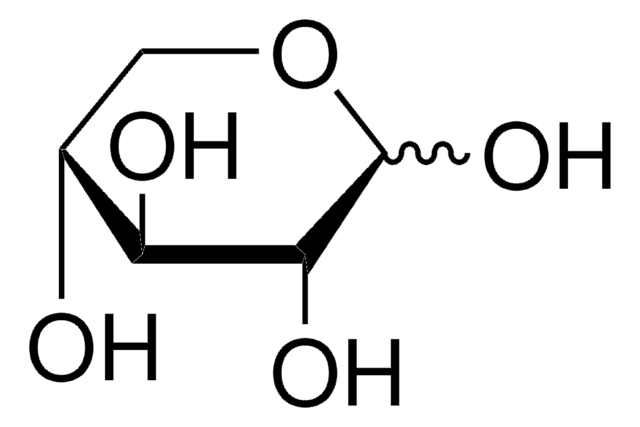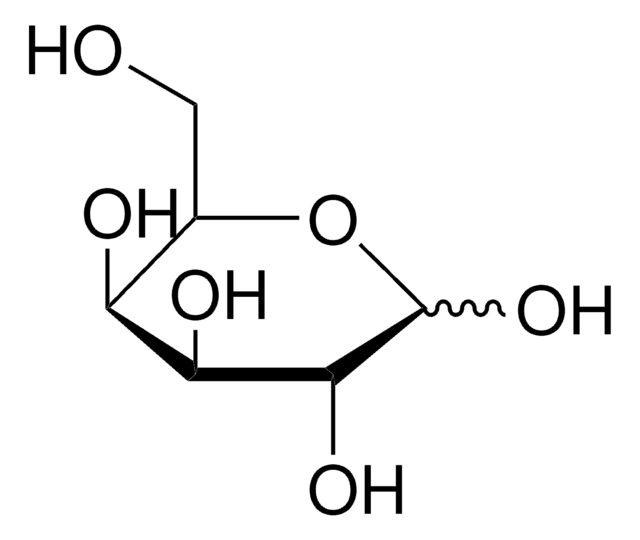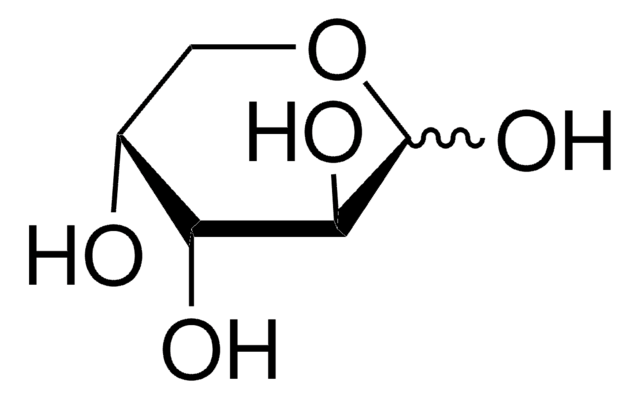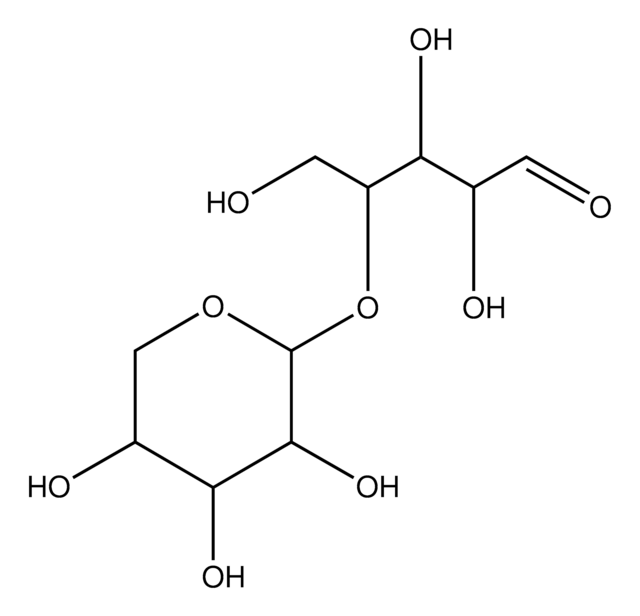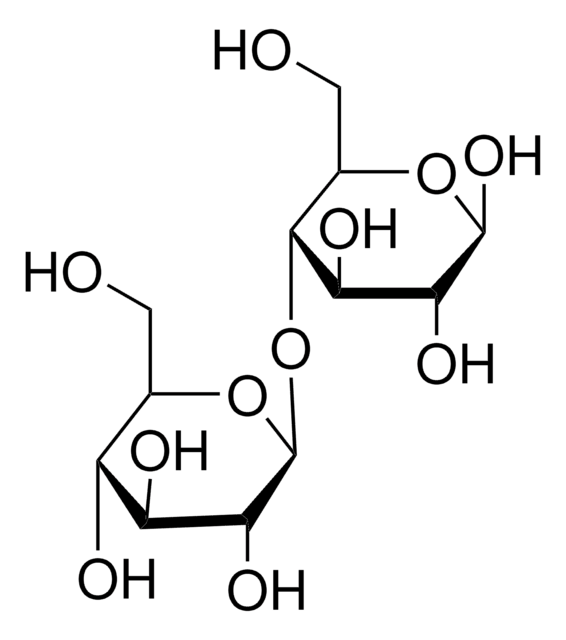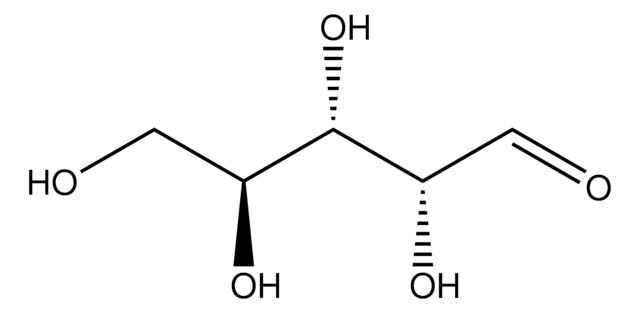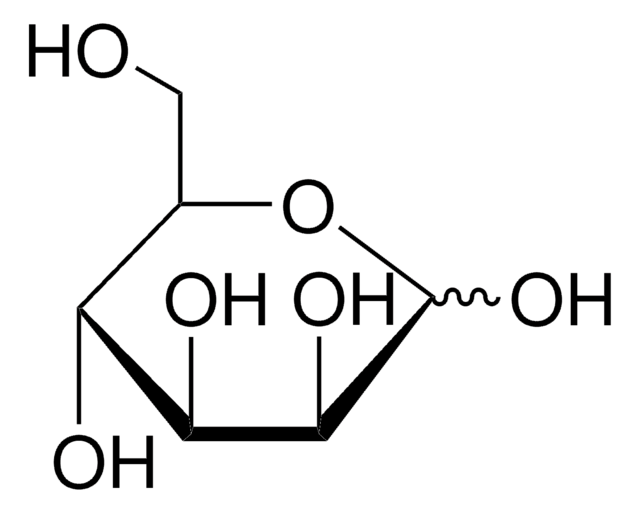X0200000
Xylose
European Pharmacopoeia (EP) Reference Standard
Synonym(s):
D-(+)-Xylose
About This Item
Recommended Products
grade
pharmaceutical primary standard
API family
xylose
manufacturer/tradename
EDQM
mp
154-158 °C (lit.)
application(s)
pharmaceutical (small molecule)
format
neat
storage temp.
2-8°C
SMILES string
O[C@@H]1COC(O)[C@H](O)[C@H]1O
InChI
1S/C5H10O5/c6-2-1-10-5(9)4(8)3(2)7/h2-9H,1H2/t2-,3+,4-,5?/m1/s1
InChI key
SRBFZHDQGSBBOR-IOVATXLUSA-N
Looking for similar products? Visit Product Comparison Guide
Related Categories
General description
For further information and support please go to the website of the issuing Pharmacopoeia.
Application
Packaging
Other Notes
Storage Class
13 - Non Combustible Solids
wgk_germany
WGK 1
flash_point_f
Not applicable
flash_point_c
Not applicable
Choose from one of the most recent versions:
Certificates of Analysis (COA)
Sorry, we don't have COAs for this product available online at this time.
If you need assistance, please contact Customer Support.
Already Own This Product?
Find documentation for the products that you have recently purchased in the Document Library.
Customers Also Viewed
Our team of scientists has experience in all areas of research including Life Science, Material Science, Chemical Synthesis, Chromatography, Analytical and many others.
Contact Technical Service